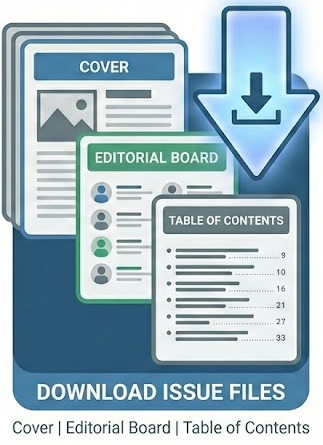Exploration of Madura Local Wisdom as a Support for Ethnoscience-Oriented Madura Tourism Database
DOI:
https://doi.org/10.30736/seaj.v5i1.737Keywords:
Exploration, Ethnoscience, Local Wisdom, MaduraAbstract
The purpose of this research is to identify and classify the types of ethnoscience-ecotourism on Madura Island, and examine the supporting and inhibiting factors. This study employs a qualitative descriptive research design and is conducted in the regencies of Bangkalan, Sampang, Pamekasan, and Sumenep. The research instruments include the researchers themselves, interview guides, and other supporting materials, whereas the data sources are primary and secondary data obtained through observation, interviews, and documentation. utilizing interactive analytic techniques to analyze research data Huberman and Miles. The results showed that the types of Madurese local wisdom with the concept of ethnoscience-ecotourism were Aer Mata Ebuh Arosbaya Bangkalan Market, Lon Malang Sampang Beach, Pamekasan Salt Education, and the Sumenep Palace Museum; The clustering of Madurese local wisdom as an ethnoscience-based tourist object that has been carried out shows that the Aer Mata Ebuh Arosbaya Bangkalan Islamic Boarding School is included in the type of religious tourism, Lon Malang Sampang Beach is of the nature and halal syari'ah tourism type, Pamekasan Salt Tourism is of the educational tour type, and the Sumenep Palace Museum type of heritage tourism. Factors supporting the development of ethnoscience-ecotourism in Madura are the concept of place, certain points as references, history in Madura and natural landscapes which are the main attraction for tourists. The inhibiting factors for the development of ethnoscience-ecotourism in Madura are the absence of the participation of the closest government apparatus (Village/POKDARWIS), the uncoordinated route network for the Madura tour network, inadequate transportation routes.Downloads
References
Ahmed, T. S. A. (2017). Assessment of Students’ Awareness of the National Heritage (Case Study: The Preparatory Year Students at the University of Hail, Saudi Arabia). Cogent Social Sciences Taylor and Francis, 3 (1): 1306202. DOI: 10.1080/23311886.2017.1306202.
Arifin, S. (2017). Digitalisasi Pariwisata Madura. Jurnal Komunikasi, 9 (1): 53-60. DOI: http://dx.doi.org/10.21107/ilkom.v11i1.2835.
Bonter, D.N. (2012). Data Validation in Citizen Science: A Case Study From Project Feederwatch. Front Ecol Environment, 10 (6): 305–307
Budhiyanti, D., Moestadjab, H., Setiyawan, A. (2019). Konsep Ecotourism Pada Kawasan Wisata Nepa Sampang-Madura. Jurnal Tata Kota dan Daerah, 2 (1): 75-83.
Chuang, Shu-Tzu. (2017). “Rural Tourism: Perspective from Social Exchange Theoryâ€. Social Behavior and Personality Journal. 38 (10): 131-142.
Ferreira, J. (2019). Regional Competitivensess of Tourism Cluster: A Conceptual Model Proposal. Portugal: University of Beira Interior
Gokovali, U. & Bahar, O. (2018). Contribution of turism to economic growth: A panel data approach. Anatolia, 17 (2): 155-167.
Ivanov, S. (2020). Creative Tourism Model and Its Applicaton In Bulgaria. 934. A SE 22and Avenue, Pompano Beach FL 33062, USA.
Jennet, C., Kloetzer, L., Schneider, Lacovides, L., Cox, A.L., Gold, M., Fuchs, B., Eveleigh, A., Mathieu, K., Anjani, Z., Talsi, Y. (2020). Motivations, Learning and Creativity in Online Citizen Science. Journal of Science Communication, 15 (3): 1-23.
Kemenparekraf. (2021). Laporan Kinerja Kementerian Pariwisata dan Ekonomi Kreatif. Jakarta: Kemenparekraf.
LPEM-FEBUI. (2018). Kajian awal dampak sektor pariwisata terhadap perekonomian Indonesia. Laporan Akhir. Jakarta: Lembaga Penyelidikan Ekonomi dan Masyarakat-Fakultas Ekonomi dan Bisnis Universitas Indonesia (LPEM-FEBUI).
Miles, M.B & Huberman, A.M. (2014). Qualitative Data Analysis, A. Methods Sourcebook, Edition 3. USA: Sage Publications
Nizar, M.A. (2018). Pengaruh Pariwisata Tterhadap Pertumbuhan Ekonomi Di Indonesia. Jurnal Kepariwisataan Indonesia, 6 (2): 195-211.
Nordin, S. (2013). Tourism Clustering and Innovation. Sweden: European Tourism Research Institute Mid-Sweden University.
Nugroho. (2015). Ekowisata dan Pembangunan Berkelanjutan. Yogyakarta: Pustaka Pelajar.
Peng, B., Song, H., Crouch, G.I., Witt, S.F. (2015). A Meta-Analysis of International Tourism Demand Elasticities. Journal of Travel Research, 54 (5): 611-633.
Sternberg, Robert J, Jarvin, Linda, Reznitskaya, Alina, Teaching for Wisdom through History: Infusing Wise Thinking Skills in School Curriculum dalam Ferrari, Michel, Potworowski, Georges, Ed. (2018). Teaching for Wisdom: Cross-Cultural Perspective on Fostering Wisdom. Netherland: Springer.
Sturtevant, W.C. (2018). “Studies in Ethnoscience†dalam Transcultural Studies in Cognition, American Anthropologist Special Publication 66 (3). Part.2.
Suwantoro, G. (2015). Dasar-Dasar Pariwisata. Yogyakarta: Penerbit Andi.
Suyitno. (2020). Kebutuhan Keterampilan Pada Revolusi Industri 4.0 dan Era Society 5.0. Jurnal Pendidikan Karakter, 2 (1): 179-186.
Torres, A. (2014). Using Indicators to Assess Sustainable Tourism Development: A Review Tourism Geographies: An International Journal of Tourism Space, Place and Using Indicators to Assess Sustainable Tourism Development: A Review. Tourism Geographies, 1 (1), 1–17. https://Doi.Org/10.1080/14616688.2013.867530
Tim. (2021). Pertukaran Mahasiswa Merdeka Untuk Perguruan Tinggi dan Dosen. Jakarta: Kementerian Pendidikan dan Kebudayaan.
Vosinakis, S. (2020). The use of digital characters in interactive applications for cultural heritage. Applying Innovative Technologies in Heritage Science, 1(1), 18-29. http://dx.doi.org/10.4018/978-1-7998-2871-6.ch006
Yasir, M & Wulandari, A.Y.R. (2020). Teaching Madura Local Content Literacy on Preservice Science Teacher Using LWIS Model. Jurnal Pena Sains. Vol. 7, No. 2, October 2020. https://doi.org/1921107/jps.v7i2.8445.
Yasir, M., Al Haq, A.T., Parmin. (2022). Ethnoscience-Based Mind Mapping Video Using Indigenous Knowledge to Practice Student’s Science Literacy Ability. Jurnal Penelitian Pendidikan Sains, 12 (1): 26-39. https://doi.org/10.26740/jpps.v12n1.p26-39.
Yunin, H., Yasir, M., Qomaria, N., Fikriyah, A. (2019). Ethnoscience Kearifan Lokal Madura. Surakarta: CV. OASE Group. ISBN: 978-602-457-286-0.
Downloads
Additional Files
Published
How to Cite
Issue
Section
License
Authors who publish with this journal agree to the following terms:
- Authors retain copyright and grant the journal right of first publication with the work simultaneously licensed under a Creative Commons Attribution-ShareAlike 4.0 International License that allows others to share the work with an acknowledgment of the work's authorship and initial publication in this journal.
- Authors are able to enter into separate, additional contractual arrangements for the non-exclusive distribution of the journal's published version of the work (e.g., post it to an institutional repository or publish it in a book), with an acknowledgment of its initial publication in this journal.
- Authors are permitted and encouraged to post their work online (e.g., in institutional repositories or on their website) prior to and during the submission process, as it can lead to productive exchanges, as well as earlier and greater citation of published work (See The Effect of Open Access).

This work is licensed under a Creative Commons Attribution-ShareAlike 4.0 International License.









